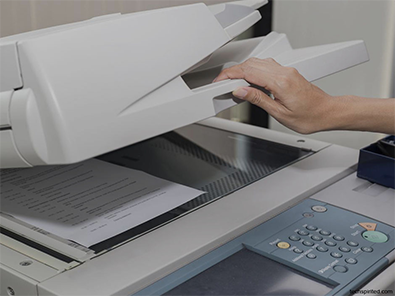In this rapidly advancing digital age, technology evolves at an astonishing rate. As a result, many of our devices, including printers, become outdated or dysfunctional. When it’s time to bid farewell to your old printer, it’s essential to dispose of it responsibly. Proper disposal not only prevents harm to the environment but also ensures the security of your personal information. In this blog post, we will guide you through the various options available for disposing of your old printer safely and responsibly.
Evaluate the Printer’s Condition:
Before deciding on the disposal method, assess the printer’s condition. Is it still functional, or is it beyond repair? If it’s in good working condition, consider donating or selling it to someone who may find it useful. However, if the printer is broken or malfunctioning, proceed to the following steps for proper disposal.
When evaluating the condition of your printer, consider the following steps:
Power and Functionality: Test whether the printer powers on and functions properly. Connect it to a power source and check if it responds to commands, prints documents without errors, and performs all necessary functions such as scanning and copying.
Print Quality: Print a test page or sample document to assess the print quality. Look for any issues like smudges, streaks, faded prints, or uneven ink distribution. If the prints are consistently poor, it may indicate a problem with the printer’s hardware or consumables.
Connectivity and Compatibility: Check the printer’s compatibility with modern devices and operating systems. Ensure that it can connect via USB, Wi-Fi, or Ethernet and that it’s compatible with your computer or mobile devices. Outdated connectivity options or lack of compatibility may limit its usefulness.
Mechanical Condition: Inspect the printer for any physical damage, broken parts, or signs of wear and tear. Check the paper tray, input/output trays, control panel, buttons, and any other moving parts. A printer with significant physical damage may not be suitable for reuse.
Research Local Recycling Programs:
Many municipalities and local authorities have recycling programs in place to handle electronic waste. Research your local recycling centers or waste management facilities to determine if they accept printers for recycling. Some facilities have dedicated e-waste recycling days or drop-off points. Reach out to them for specific guidelines on how to dispose of your printer safely.
Manufacturer Take-Back Programs:
Several printer manufacturers have implemented take-back programs to encourage responsible disposal. Companies like HP, Canon, and Epson have initiatives in place to collect and recycle their products. Visit the manufacturer’s website or contact their customer service to inquire about their take-back program for printers. They can provide instructions on how to return the printer for proper recycling.
Electronics Retailers:
Certain electronics retailers also offer recycling services for old printers. For instance, stores like Best Buy have recycling programs where you can drop off your unwanted electronic devices, including printers. Check with your local electronics retailers to see if they have similar initiatives and if they accept printers for recycling.
Local Electronic Waste Collection Events:
Keep an eye out for electronic waste collection events in your community. These events are often organized by local authorities or environmental organizations. They provide an opportunity to dispose of your old printer and other electronic devices safely. Look for advertisements or announcements in your area to find out when and where these events take place.
Data Security Measures:
Before disposing of your printer, it’s crucial to ensure that any personal or sensitive information is securely removed. Printers often store data such as previous print jobs, network settings, or even saved documents. Refer to the printer’s manual or manufacturer’s website for instructions on how to perform a factory reset or data wipe. By taking these precautions, you can protect your privacy and prevent any potential data breaches.
Conclusion:
Disposing of your old printer responsibly is not only good for the environment but also for safeguarding your personal information. Through recycling programs, manufacturer take-back initiatives, and local e-waste collection events, you can ensure that your printer is properly recycled or reused. Remember to wipe any stored data from the printer to protect your privacy. By following these guidelines, you can contribute to a cleaner and more sustainable future while making room for new and innovative technology.




